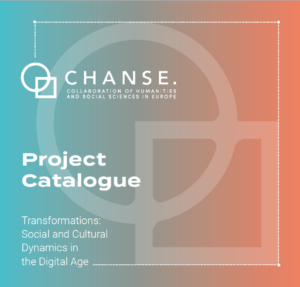The main goal of the CHANSE Programme is to launch a transnational call for collaborative projects focused on the topic of Transformations: Social and cultural dynamics in the digital age. Among the group of 366 project proposals, 26 excellent projects were awarded funding.
Thanks to the generous support of the EU and European research funding organisations, important challenges such as the digitalisation of homes, as well as public service media in the age of platforms, digitalisation and conspiracy theories, will be tackled by transnational consortia. The joint endeavours of collaborative research teams are expected to bring excellent scientific results and create a future impact for European societies in the digital age.
Funded projects


























